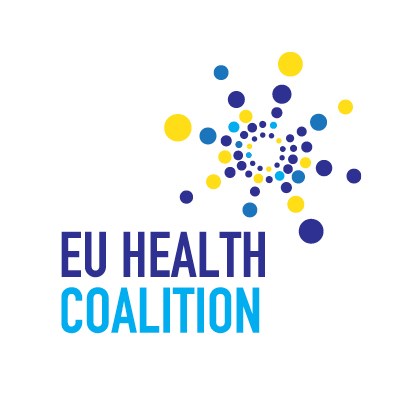
On the 4th of February, partners of the EU Health Coalition gathered in Brussels for the conference “Towards outcomes-based healthcare in Europe – How can the State of Health in the EU show the way?”
Following the publication of the Country Health Profiles and Companion Report, the event explored how the State of Health in the EU can be implemented at a national and regional level to address challenges in the current health systems and to show the way towards outcomes-based healthcare in Europe. The State of the Health in the EU is an initiative carried out by the European Commission, the European Observatory on Health Systems Policies, and the OECD. EUREGHA brought the regional perspective in the debate with Solvejg Wallyn, executive board member, Cesar Velasco Munoz, Vice-chair, and a representative from Wales NHS, dr. Sally Lewis.
The morning started with an opening speech delivered by Sylvain Giraud, Head of the Unit on Performance of National Health Systems (DG SANTE) European Commission. Mr Giraud gave a brief overview of the State of Health in the EU, a two-year policy cycle in which expertise and best practices are easily accessible for health policymakers, the public health community, and the academic world at both the EU and national level. It is put together by the health experts and health economic experts and the report includes both quantitative and qualitative data. The report includes all 27 Member States, as well as the UK, Iceland and Norway. The report looks at three major ideas within the health system: resilience, accessibility, and effectiveness. The cycle also includes creating specific Country Health Profiles. The goal of the project is to foster collaboration and allow health authorities to discuss with the authors of the report and to foster a discussion on how to improve health systems. Mr Giraud stated that there were five major trends of the report:
- Tackling the Decline in Vaccination Confidence Across the EU
- Digital Transformation for Health Promotion and Disease Prevention
- Strengthening the Evidence Base on Access to Healthcare:
- shifting in tasks between the health Health Workforce:
- Understanding Access to Medicines
Josep Figueras, Director of the European Observatory on Health System Policies, continued by going through the country profiles and stating that indicators and data should trigger debates among decision-makers. The country profiles do this in a structured way by looking at specific areas in the health system including behavioural risk factors, the characteristics of specific health systems, and an assessment of those health systems using the three performance dimensions of effectiveness, accessibility and resilience. During the first panel, stakeholders were invited to give a reaction to the report and discuss how implementation works in practice on a national and regional level. Solvejg Wallyn, Executive Board member of EUREGHA, explained that it is important to collect healthcare data on a regional level, providing the audience with concrete examples of the Flanders Atlas of Care.
Michael van den Berg, from the Organisation for Economic Co-ordination and Development, then showcased how the OECD’s work can facilitate outcomes-based healthcare systems. The Patient-Reported Indicators Surveys (PaRIS) initiative by OECD was presented at the event. The objective of PaRIS is to benchmark outcomes and experiences of health care that matter to people. Although health systems across the OECD spend around 9% of their GDP on health, it is shocking how little we know about whether health systems are truly delivering what people need. The outcomes achieved for patients and how they experience care are rarely measured in a systematic and rigorous way. It is difficult to improve what has not been measured and the PaRIS initiative addresses this major gap.
The second debate evolved around the OECD presentation. Cesar Velasco Munoz, Vice-chair of EUREGHA and Director of AQuAS, explained how Catalunya is helping their health system to define what value actually means and how to achieve it through Health System Transformation. The journey towards Value-Based healthcare that is taking place in Catalunya is a cultural transformation. This vision is applied from health planning to insurers, providers, patients and industry. Everybody is on board to deliver changes that matter to patients and citizens. Another concrete tool which is helping to re-define the concept of Value in Catalunya are Public Procurement of Innovation (PPI) projects, eg. Ritmocore.
Sally Lewis, from NHS Wales, talked around their work to collect and use patient-reported outcomes data. The integrated care system has made it easier to shift financing to where it adds most value. Moreover, she stressed how no data sources can be used in isolation and how enhancing digital communication, between doctors and patients, was a cornerstone to improve health system results and sustainability.
The main takeaway message of this fruitful exchange of views on how to move at EU level towards outcomes-based healthcare are:
- Define a common approach on how PROMs are used
- Invest in a public-private partnership in healthcare
- Collect best practices & integrate data
Multi-Stakeholder dialogue and cooperation are key to advance policies and tools for effective, accessible and resilient health systems. Next stop to shape together our vision for health is the EU health Summit, Brussels, 4th and 5th of May.
Time for action, do not miss the opportunity to get involved in the debate!






